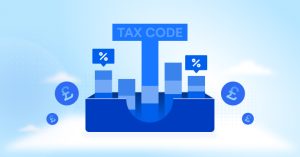This year's Universal Credit update has kept many on the edge of their seats, especially those closely tied to the economic fabric that UC supports. The most important impact of the Spring Budget is the extension of the loan period from 12 to 24 months, which makes the monthly payments lower.
Let's start from the basics though;
What is Universal Credit?
Universal Credit is a government welfare program in the UK that provides financial support to individuals and families who are low-income or unemployed.
It replaces six existing benefits, including
- Income Support,
- Jobseeker's Allowance, and
- Housing Benefit,
- Child Tax Credit,
- Income Support,
- Working Tax Credit
into one single payment. Its aim is to simplify the benefits system and make it more responsive to changes in claimants' circumstances. In other words, if you or your partner apply for universal credit the above benefit will cease, so it`s a matter of either universal credit or one of the above.
Who is Eligible to Apply for Universal Credit?
To be eligible for Universal Credit, you must:
- Be 18 years or older (or 16-17 with certain circumstances)
- Have a low income or no income at all
- Be under the earnings limit set by the government
- Not being in full-time education
- Have a valid National Insurance Number
Additionally, those who have savings above £16,000 will not be eligible for Universal Credit.
You can still claim universal credit as a full-time student if you:
- Are responsible for a child, or
- Have a disability, or
- Have limited capability of work.
- Live with your partner and they`re eligible for universal credit.
Despite the general rule, you can also claim universal credit if you are 16 or 17 years old if you fall under the following circumstances:
- You have limited capability to work, and underlying health conditions that can be proven medically.
- You are responsible for a child, which means you are pregnant for more than 6,5 months (roughly 11 weeks before the labour) or you have a newborn younger than 15 weeks old,
- Full-time student and living with your partner who is eligible for universal credit.
How does Universal Credit Work?
Once your application is accepted, you will receive a monthly payment that includes:
- Standard allowance (based on your age and relationship status)
- Child support allowance
- Housing costs (rent or mortgage interest)
- Disability benefits
In some cases, you may also be entitled to additional benefits such as free school meals, maternity/paternity grants, or cold-weather payments.
The amount of Universal Credit you receive will depend on your earnings, as it is designed to top up your income to a certain threshold set by the government. As your earnings increase, your Universal Credit payment may decrease until it reaches zero.
How much is Universal Credit?
1) The standard allowance is a monthly amount that varies by age and relationship status.
For example,
- if you're single and under 25 years old, your Standard Allowance will be £292.11 per month.
- If you're single and over 25, it will be £368.74 per month.
- If you live with your partner and you are both under 25, it will be £458.51 FOR BOTH OF YOU.
- If you live with your partner and only one of you is 25 or over, it will be £578.82 FOR BOTH OF YOU.
However, the actual amount of Universal Credit received can vary greatly depending on individual circumstances, such as housing costs, earnings, and eligibility for additional benefits. It is important to check your personalized entitlement through the government's online calculator or by contacting a financial advisor.
2) For childcare cost, up to 85% of the cost can be covered by Universal Credit, with a maximum limit of £950.92 for one child or £1630.15 for two children per month.
3) If you have a disability or health condition that impacts your ability to work, you may be entitled to additional support through Universal Credit. This can include a work allowance of up to £390.06 per month for those with limited capability of work and a higher payment cap for those with severe disability.
4) If there is a person that you have to care for in your household, you may be entitled to a carer's allowance of £185.86 per week or £89.60 if you receive income support.
Universal Credit Benefits
Some benefits affect the universal your universal credit payment. If you are on one of the following benefits;
Incapacity benefit
Severe disablement allowance
Contribution-based Jobseeker's Allowance,
Contribution-based Jobseeker's Allowance,
Guardian's Allowance,
The universal credit payment you`ll receive will be reduced.
However, it is important to keep in mind that Universal Credit can increase if your circumstances change, such as losing your job or becoming a single parent. It is also regularly reviewed and updated by the government, so stay informed about any changes that may affect your payment. Remember, Universal Credit is designed to provide support during times of financial instability, so don't hesitate to reach out if you need help understanding the system or navigating unexpected challenges.
Universal Credit One Partner Working
If you are part of a couple and your partner is working, their income will be taken into account when calculating your Universal Credit payment. However, the first £292 of their monthly earnings will not be considered in the calculation. This means that if they earn more than this amount, your Universal Credit payment may decrease accordingly. For every £ you make there is a 55p cut from your universal credit payment if your partner is working and you are on universal credit.
Additionally, if you are both eligible for Universal Credit, you will receive one single household payment to be shared between you.
Universal Credit When You Are a Self-Employed
If you are self-employed, your Universal Credit payment will depend on your earnings and expenses. You will need to report your estimated monthly income at the beginning of each assessment period, and then report your actual earnings once they have been received. Your Universal Credit payment may also be affected by any losses or expenses incurred during that month. It is important to keep accurate records of your earnings and expenses, as well as communicate any changes to the government.
How to Claim Universal Credit?
To claim Universal Credit, you will need to apply online through the government's website on you universal credit login here. You will need to provide personal information, such as your National Insurance number and bank details, as well as details about your housing situation and income. It is important to have all the necessary information and documents ready before starting the application process. Once submitted, your application will be reviewed and you may be asked to provide additional information or attend an interview. If your application is accepted, you will receive a monthly payment into your bank account and will need to report any changes in circumstances promptly.
Payments usually start in 5 weeks upon the application and you get paid the same day as your first payment, which is most of the time 7 days after your credit.
Conclusion
Universal Credit is a government program designed to provide financial support to those who are struggling financially. It is important to understand the different aspects of Universal Credit and how they may affect your individual situation. Remember, the amount of Universal Credit you receive will depend on various factors, such as your earnings, housing costs, and eligibility for additional benefits. It is crucial to keep accurate records and stay informed about any changes or updates to the system. And remember, don't hesitate to seek help if you need assistance navigating the world of financial services. So whether you are a self-employed individual, part of a couple, or have specific needs due to a disability or caring responsibilities, Universal Credit is there to provide support and guidance through challenging times.













